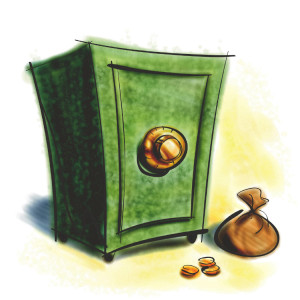
St. Patrick’s Day is fast approaching, and, as we all know, everyone’s trying to get the pot of gold at the end of the rainbow. However, what you may not realize is you’re already sitting on a pot of gold: your estate. And, not only do you have this gold, you also need to protect it. Estate planning is the process by which you decide where your assets will go after you die. But, that’s not all that an estate plan protects. It also helps with medical care and property while you’re still alive.
In this article, we will look at the many ways your estate plan can protect your pot of gold, both before and after you die.
Before You Go
If you were to ask people on the street what they think estate planning entails, you’d probably get a lot of answers about a last will and testament. But after death isn’t the only time your estate plan comes in handy. With it, you can protect, while still living:
- Your medical needs.
If you are in incapacitated or unconscious, that doesn’t mean that you won’t need medical care, and it also doesn’t mean that your medical care has to become depersonalized. Through estate planning, you can have what is known as an advanced healthcare directive, where you dictate details about your medical care that you wish to receive during this period. This is also called a living will. Your medical needs and wishes will be protected through this estate planning document.
- Your financial needs.
Similarly, if you are incapacitated, you will want someone to make your financial decisions for you and keep your finances in good order. Through a power of attorney, you can select someone you trust to make these decisions, providing protection for your finances.
Protecting Your Pot of Gold After You Pass
Estate planning also allows you to make arrangements after you’ve passed on. By having a living trust, you can avoid probate court and have your assets moved to the correct places as quickly as possible. Here are the things that estate planning can protect after you have passed on:
- Assets.
Obviously, estate planning through documents such as a living trust will ensure that your money and property will go where you want them to when you’re not around. A living trust is a three-party fiduciary relationship between a donor (the person giving the asset), trustee (the person the donor gives it to temporarily), and the beneficiary (the asset’s eventual destination. You can ensure your estate is wrapped up as quickly as possible using these types of tools.
- Your beneficiaries
If you plan your estate properly, you won’t have to go through probate court, which is a long, difficult process your family will not want to experience. Estate planning can also shield your estate from certain liabilities and taxes, saving your family money.
Estate planning can help you protect your pot of gold, distributing it where you want it and saving your family a lot of time and hassle in the future.